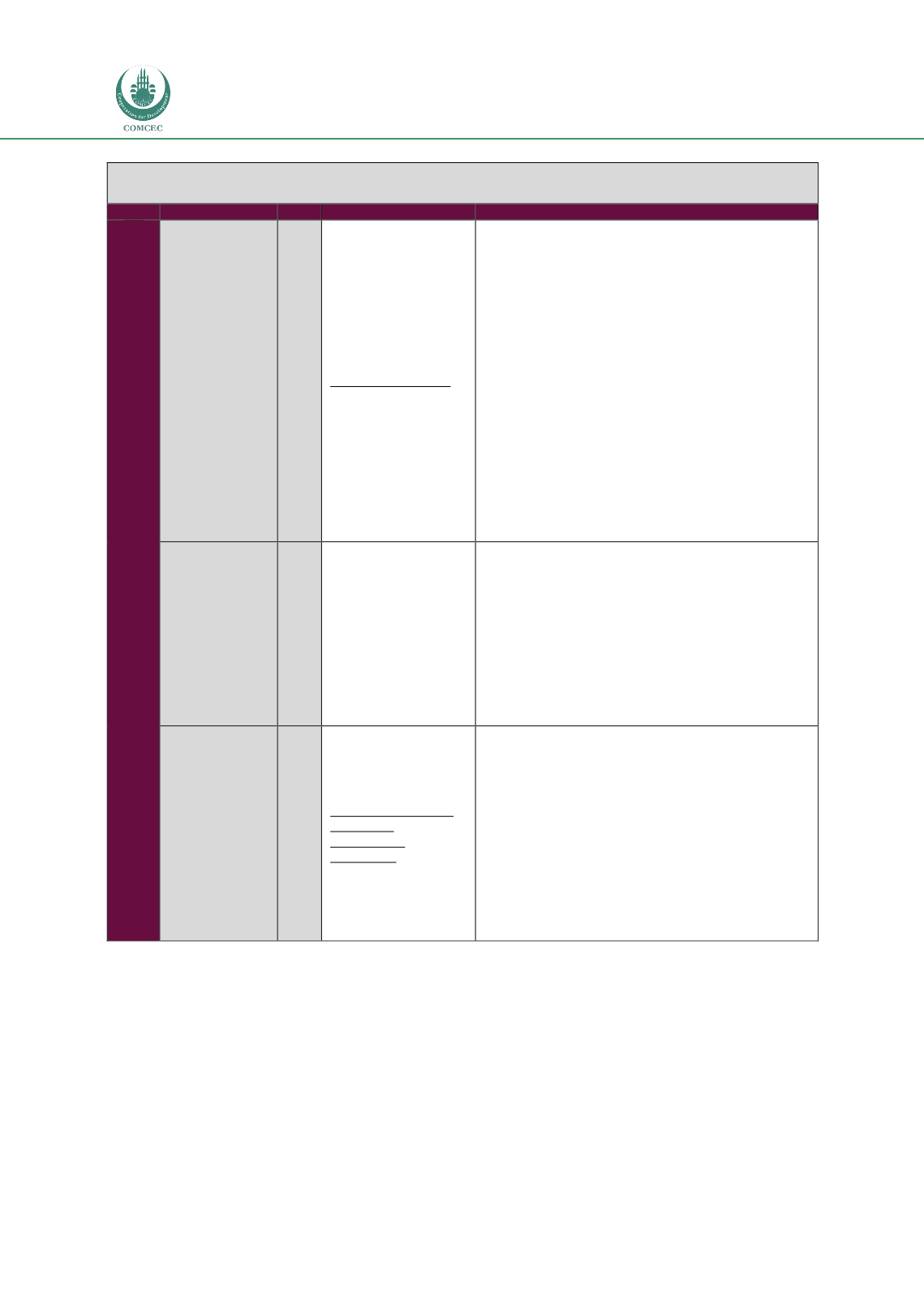

Improving Institutional Capacity:
Strengthening Farmer Organizations in the OIC Member Countries
98
3. Has the Government announced any recent policy initiatives explicitly designed to
encourage farmer organizations?
Group
Country
Y/N
Source
Comments
African Countries (cont’d)
Nigeria
Nigerian GovernmentAccording to the New Nigerian Agricultural Policy, there is
a directional shift in strategy that will lay the foundation
for sustained improvement in agricultural productivity and
output. The new strategies involve: (i) Creating a more
conducive macro-environment to stimulate greater private
sector investment in agriculture; (ii) Rationalizing the roles
of the tiers of government and the private sector in their
promotional and supportive efforts to stimulate
agricultural growth; (iii) Reorganizing the institutional
framework for government intervention in the agricultural
sector to facilitate the smooth and integrated development
of the sector; (iv) Articulating and implementing integrated
rural development programs to raise the quality of life of
the rural people; (v) Increasing budgetary allocation and
other fiscal incentives to agriculture and promoting the
necessary developmental, supportive and service-oriented
activities to enhance agricultural productivity, production
and market opportunities; and (vi) Rectifying import tariff
anomalies in respect of agricultural products and
promoting the increased use of agricultural machinery and
inputs through favourable tariff policy.
Senegal
Official Journal of the
Republic of Senegal;
World Wide Extension
Study; World Bank
Reforms of the framework law regulating the establishment
and governance of FOs requires FOs to be open and
accessible. The law also emphasizes the autonomy and
independence of Fos as well as the centrality of agricultural
extension and training to the role/mandate of FOs. In
addition, the National Extension Services Agency was
created to provide a system for public-private partnerships
that engage FOs in the delivery of agricultural extension
and advisory services to farmers. Furthermore, government
agencies such as the National Extension Services Agencies
were connected to research institutions such as the Institut
Senegalais de la Recherche Agronomique.
Sierra Leone
Comprehensive Africa Agriculture Development ProgrammeThe programme has a broad-based participation of
government, private sector and cooperating partners,
which is spearheaded by the President. The SCP (2009 to
2012) seeks to increase agricultural sector growth from the
current 4% to 7.7% per annum by 2015; increase incomes
of farming households by 10%; and increase household food
security by 25%. Its strategic programmes for smallholder
commercialization include: production intensification;
diversification; value addition and marketing; small scale
irrigation development; market access expansion through
feeder road rehabilitation; smallholder access to financial
services; strengthening social protection, food security, and
productive social safety nets; and SCP planning,
coordination, and monitoring and evaluation.

















